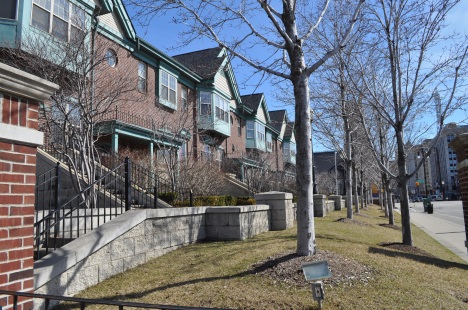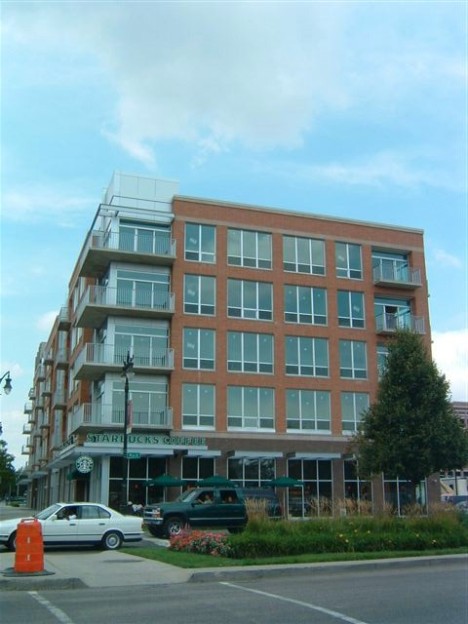Jon Zemke | Model D

Model D | Marvin Shaouni Photography
Austin Black’s love of Detroit goes deep.
“Detroit created my love affair with cities and urban planning,” says Black, a Cornell grad who grew up in and around the city. “I see what as I do now as giving back to a place that really influenced who I am today. Detroit is not dead. There are a lot of opportunities in Detroit.”
To him that means a chance to have real influence on a big city’s urban fabric.
After about a decade of working as a realtor for other firms, the Detroit resident recently struck out on his own to transform his City Living Detroitnonprofit — which promoted city living through newsletters and real estate tours — into a for-profit, full-time, full-service city-based brokerage.
Black says that City Living Detroit has already landed agreements to manage or be involved with the sales and marketing of several Detroit developments including: The Mack @Brush Park, Willys Overland Lofts, Brush Park Village North, and Centurion Place.
He spoke with Model D from his Willys office recently to talk about Detroit, the opportunities it presents and how best to take advantage of them.
Q. You’re starting a real-estate brokerage in what is considered the worst real-estate market in generations and in one of America’s poorest big cities. What goes through your mind when people ask if you’re crazy?
A. Ironically, I never get that question.
Q. Really?
A. A lot of people see a real opportunity in the city despite the negative stuff going on. Friends who have visited here really understand it. There is a real authenticity that people see. A couple of my friends have said, ‘Wow, I liked this a whole lot better than I thought,’ because there is a uniqueness in Detroit that can’t be replicated in other cities.
Q. You went to college at Cornell and have visited or lived all over the world. How important is this broader perspective?
A. It’s extremely important. When you live and experience different things you will look at things with a fresh perspective. You see other places have challenges. When I lived in Rome, that city had one of the highest crime rates in Western Europe. That didn’t stop me from walking around at night. If people here have that concern about crime, that perspective allows me to address it another way than if I had always been here. It helps me explain the real side of the story. It allows me to do my job to the best of my ability.
Q. Many Detroiters leave the Motor City soon after graduation. Why did you decide to buck this trend and come back here to start your business?
A. When I graduated in 2003, I did look at other cities, like New York and Washington, D.C. I wanted to have a meaningful career that gives me a sense of purpose. While D.C. and New York are great, I wouldn’t have that same opportunity to provide that impact. It wouldn’t be as fulfilling to me.
Q. What should Detroit do to attract more of your peers?
A. The city needs to market itself as an open place to ideas and people. It basically has to say, “You want to get involved in improving the city? We’ll welcome you. We’ll help you the best way we can.” … Detroit has a lot of corporations. They have to embrace Detroit. When they try to attract people, they need to sell Detroit hard. They can’t say you can work here and live anywhere but Detroit. That makes the region and the corporations look bad. A lot of places have come around to the idea that to attract the best and brightest you need a strong central city.
Q. Initiative programs like TechTown and the Creative Corridor are aimed at reinventing the city. What sort of impact do you see programs like these having over the next 5-10 years?
A. I participated in the FastTrac program at TechTown. It gave me the knowledge and confidence I needed to start my own business. There are several other entrepreneurs who have opened up in the neighborhood that went through the FastTrac program. Its shifting the idea of everybody works for someone to being your own boss and have my impact on my community. That has a tremendous impact on the way this area looks and what it will become. TechTown is a great resource for this area. The Creative Corridor could take the same spin but from a creative standpoint. Its appeal could go beyond entrepreneurship and be used as a tool to support existing businesses.
Q. You’re helping advise city leadership on how to reshape the city, a la Youngstown and Flint. Although Detroit shares a lot of similarities with those cities, it is still a much bigger place both physically and population-wise. Should we be following what those cities did in regards to land use or creating more of our own path?
A. We shouldn’t follow those other cities. We should study and understand them. Certain things they have done have been successful. Others have not. No plan is perfect. We can’t copy other places. If you do we’re bound to fail. Looking at Detroit as a unique situation, you’ll have to say in downtown this is going to work but it’s not going to work in Brightmoor. It’s all about having a vision and saying where do we want Detroit to be 5, 10, 15 years from now.
Q. What’s one of those things they have done that you’re skeptical would work here?
A. The idea of shrinking the city and abandoning large parts of it. You can’t look at Detroit long-term and say large parts are not viable forever. Some areas you might have to reinvent with more green space and urban farms. Detroit is a big city. It can accommodate all of those things.
Q. Detroit has a habit of frustrating the people who try to improve it. Has this happened to you yet? If so how did you respond to it?
A. In our recent political history there was so much stuff that if you picked up the papers or turned on the TV you would have thought we were going straight to Hell. I knew a lot of people who were just opening their businesses. They were excited and moving forward. Seeing those places open and become successful energized me.
Jon Zemke writes about startups for Model D. He conducted and condensed this interview in person. His last story was “The Young & Entrepreneurial: Q&A with Elevator Building developer Randy Lewarchik.” Send feedback here.
Filed under: Austin Black II, Condos for Lease | Tagged: Austin Black II, City Living Detroit, Detroit Brokers, Detroit Real Estate, Detroit Realtors, Jon Zemke, Marvin Shaouni Photography, Model D Media | Leave a comment »









